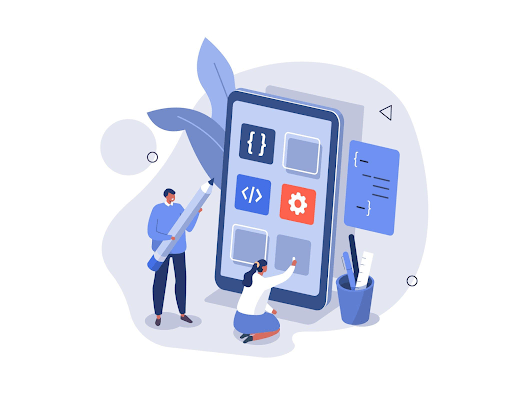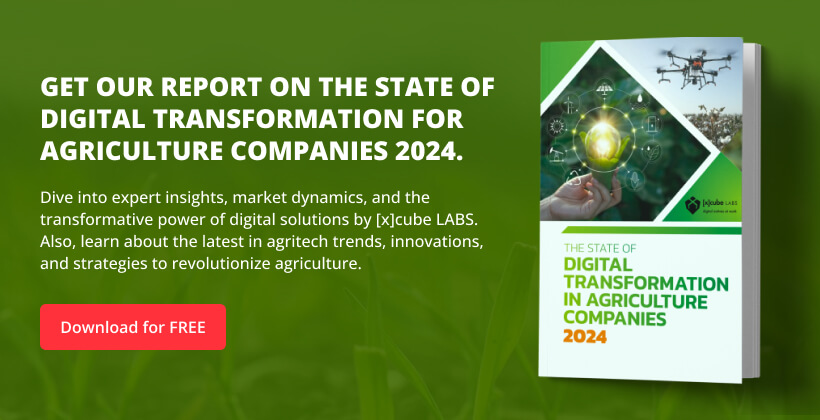Everything You Need to Know about Mobile Application Development

With over 6.3 billion active smartphone users, the mobile application development industry thrives worldwide. Mobile application development gives mobile users a seamless experience by leveraging a smartphone’s built-in features.
Statistics reveal that about 78% of people worldwide own a smartphone. What are people doing on intelligent devices? They are using mobile applications for different needs. App development is a continuously growing industry. Mobile applications are expected to generate $935 billion in revenue by 2023.
Creating an app can be complicated; you need to understand every aspect. We have created a comprehensive guide to help you start your mobile app development project.
What is Mobile App Development: An Overview
Mobile app development includes writing comprehensive code for creating software and designing an application. Developers develop apps to leverage the power of devices’ specific features such as cameras, Bluetooth, GPS, and microphones.
Most developers create applications for Android and Apple because these two platforms dominate the global market share.

Mobile App Development Lifecycle
The mobile app development lifecycle is much shorter than the software development lifecycle. The mobile app development lifecycle refers to the software development process. This process includes the following five primary steps:
Inception
The first is refining the ideas and strategies. Every app development project begins with a solid concept. A unique idea makes the foundation for an application. The first step focuses on improving and identifying an app’s concept.
A unique concept with zero competition is challenging, so thorough market research is critical for developing a practical mobile application. Your market research must include identifying your competitors, target audience, best platform for launching your app, and proven strategy to stand out.
Design
The second step includes building your UX design. Once the idea is finalized, start thinking about the look and feel of your application. Focusing on the user experience must be the top priority of an app developer. Before building a fully functional app, you need to create prototypes of the apps.
App Development
Now it is the foremost step of your app development process. It includes everything from front-end building and back-end building to APIs. To complete the process effectively, you must select a development process, build a development team, and give yourself a timeline with goals and milestones.
Depending on your preferences, you can develop two versions of the app: one for Android and one for iOS. You can also use cross-development platforms to design a single app version that can work well for both platforms.
Testing
Before making your application live, you must ensure it is working well. App testing will help you find glitches and bugs that need to be cleaned before app distribution. You can test your app on tablets and smartphones to ensure its effectiveness and reliability.
Distribution
Once your app is stabilized and tested, you can release it on your preferred platform. Using its online app distribution program, you can distribute your app on iOS with minimal effort. However, your application must be signed before being deployed on Android.

Benefits of Mobile App Development
You can get the following benefits by developing a mobile application:
- Offline Access
Your users can access several areas of functionality without needing access to the web. Offline access seems more consistent and convenient to users.
- Custom User Experience
Developing custom mobile apps is an excellent approach to ensuring a tailored and successful user experience. Considering the needs of your target audience when creating an application can help you anticipate a greater return on investment (ROI) with increased customer involvement.
- Increased Accessibility
With mobile application development, you can access a wealth of data and information at the touch of a button. This increased accessibility can greatly improve customer engagement and allow businesses to build loyal and robust relationships with customers.
Skills Required for Mobile App Developers
Mobile app developers typically require diverse technical and soft skills to be ideal for a development position. A suitable skill set helps developers build a practical mobile application, maintain their competitive advantage, and develop better security measures.
A mobile developer typically requires the following technical and soft skills to be successful:
- Programming language skills
- Back-end computing
- Computer proficiency
- Cross-platform development skills
- User interface design
- Cybersecurity skills
- Business skills
- Time management
- Leadership skills
Mobile App Development Tools
Mobile app development tools are specialized tools designed to help developers create mobile applications. Developers can use both cross-platform and native mobile app development tools to complete their projects.
- Native Mobile App Development Tools
These tools are designed to help build specialized apps that can work quickly and highly. You can develop a mobile application dedicated to a specific platform, such as Android or iOS, with native app development platforms.
- Cross-Platform Mobile Development Tools
Cross-platform mobile app development tools are designed to help developers develop a mobile app that can work for multiple platforms.
You can use the following tools for mobile app development:
- Xamarin
- PhoneGap
- Mobile Angular UI
- jQuery Mobile
- NativeScript
Mobile App Development Examples
Numerous apps in different genres, including games, entertainment, and messaging services. You can download 1.96 million apps on the Apple App Store, whereas the Google Play Store has 2.87 million.
Some common mobile app development examples include:
- Social media: Facebook, Instagram, Twitter, TikTok, Snapchat
- Communication: WhatsApp, Skype, Zoom, Google Meet
- Gaming: Pokémon GO, Roblox, Fortnite, Call of Duty Mobile
- Music and video streaming: Spotify, YouTube, Netflix, Disney+
- Navigation: Google Maps, Waze, Apple Maps
- Shopping: Amazon, eBay, Wish
- Food delivery: Grubhub, DoorDash, Uber Eats
- Ride-hailing: Uber, Lyft
For more on mobility and mobile app development, this list of top blogs on enterprise mobility compiled by FeedSpot could be highly insightful.
The Bottom Line
It is no wonder that the mobile app development industry has been growing continuously. Custom mobile app development can help increase productivity, improve customer engagement, get more return on investment, and increase accessibility. Mobile app development includes strategic planning, deep market research, and testing of the app before its distribution. Getting help from a trusted Mobile App Development Company can be the ideal approach for developing a custom application.
![Blog-[x]cube LABS](https://d6fiz9tmzg8gn.cloudfront.net/wp-content/uploads/2016/06/blog_banner.jpg)






